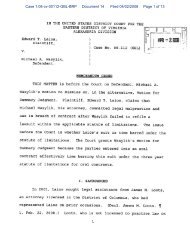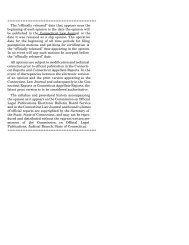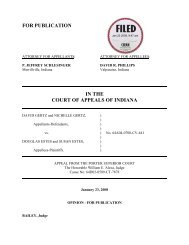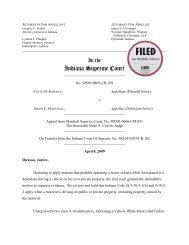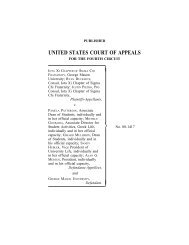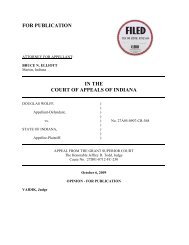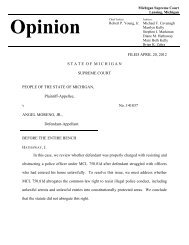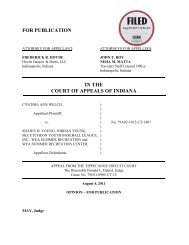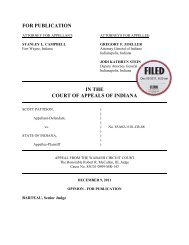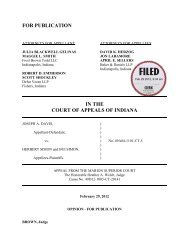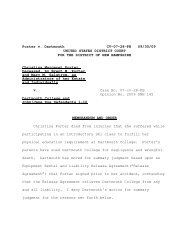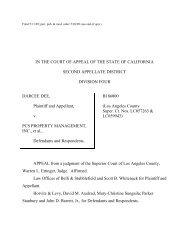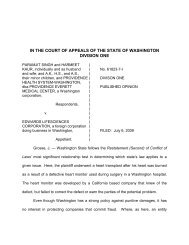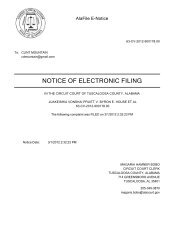PRECEDENTIAL UNITED STATES COURT OF APPEALS FOR THE ...
PRECEDENTIAL UNITED STATES COURT OF APPEALS FOR THE ...
PRECEDENTIAL UNITED STATES COURT OF APPEALS FOR THE ...
Create successful ePaper yourself
Turn your PDF publications into a flip-book with our unique Google optimized e-Paper software.
U.S.C. § 2679(d)(2). The Government then substituted the<br />
United States as the sole party defendant. Id. Santos and the<br />
Government thereafter stipulated to a voluntary dismissal of the<br />
removed action without prejudice so that Santos could bring an<br />
administrative claim as the FTCA requires. 28 U.S.C. §<br />
4<br />
2675(a).<br />
Santos did not challenge the removal of her case to the<br />
District Court or the substitution of parties and, accordingly, she<br />
filed the contemplated administrative claim. The Department of<br />
Health and Human Services, however, failed to take action on<br />
her claim for six months, and its inaction was deemed a denial<br />
of her claim. She then filed this suit in the District Court. After<br />
answering the complaint, the Government moved for judgment<br />
on the pleadings, or, in the alternative, for summary judgment,<br />
on the ground that the FTCA’s two-year statute of limitations<br />
barred Santos’s claim. On the proceedings on the motion,<br />
Santos acknowledged that she filed her claim in the state court<br />
more than two years after its accrual, but argued that the<br />
FTCA’s statute of limitations should be equitably tolled so that<br />
her claim would be timely because she did not know that the<br />
allegedly negligent healthcare providers had been deemed<br />
federal employees. The District Court rejected Santos’s tolling<br />
argument and found that her claim was untimely because in its<br />
4<br />
In this stipulation, the Government waived the right to file<br />
a motion to dismiss based on the FTCA’s statute of limitations<br />
but reserved the right to plead as an affirmative defense “any<br />
statute of limitations issues” and the right to file a motion to<br />
dismiss on other grounds. App. at 102-03.<br />
8



